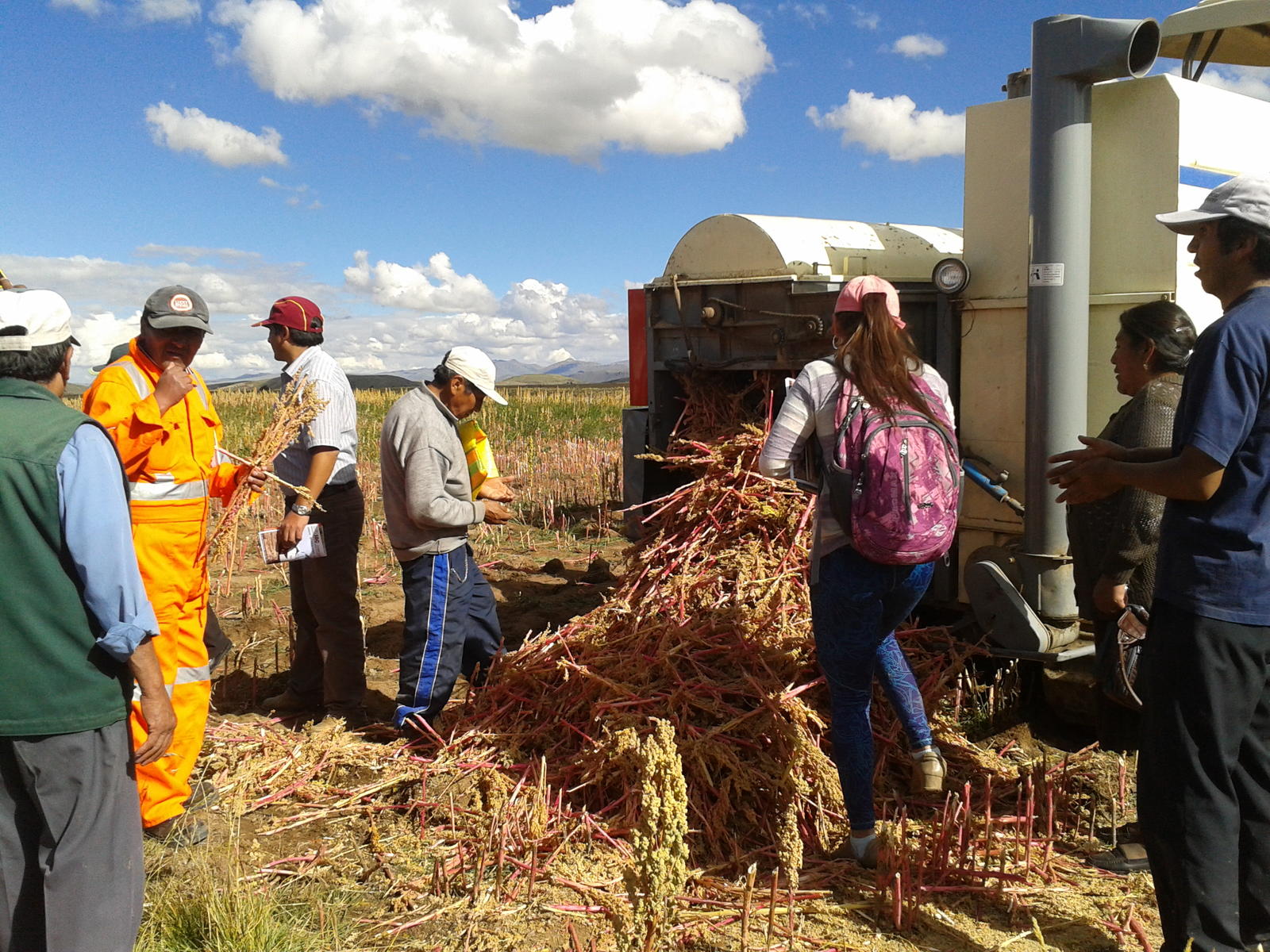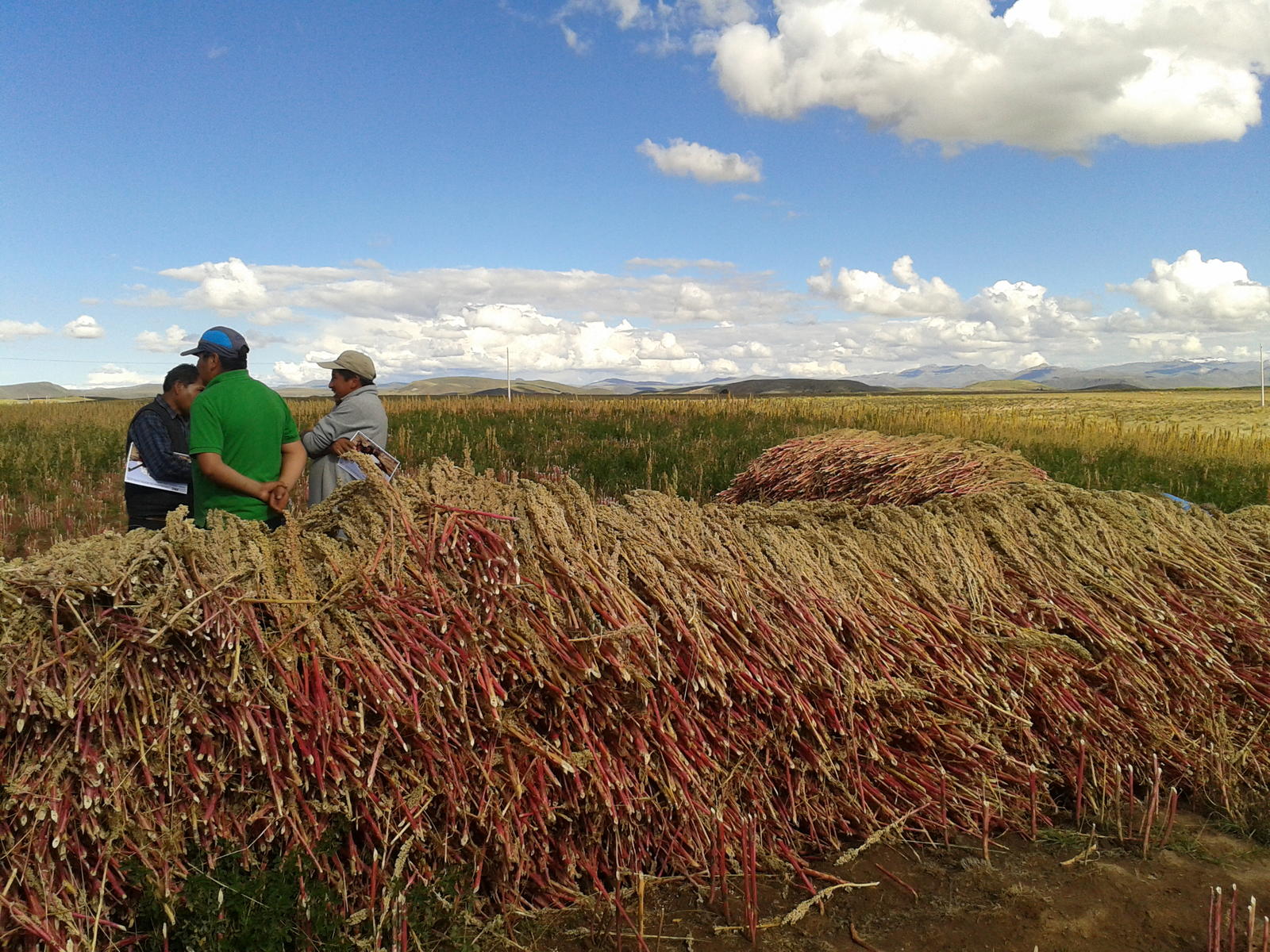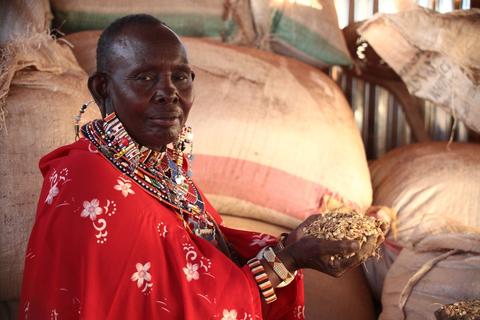October 18, 2018
Fair trade of quinoa multiplies opportunities in Peru
Quinoa was considered as a food for the underprivileged until very recently. Today, the traditional grain is the star of gourmet dishes and even used by NASA astronauts conducting missions for extended periods of time in space. Its incredible rise to fame has resulted in the price of this traditional grain to skyrocket in international markets, but has failed to boost the wealth of Quinoa producers in Peru. In light of this situation, the rural farmers of the regions of Puno and Ayachucho decided to form an association two years ago and promote the quality of this ancestral grain as a springboard to help develop and improve their communities, all thanks to an initiative by the United Nations Sustainable Development Goals Fund (SDG Fund).
In European and American supermarkets quinoa cost about 15 dollars per kilo (2.2 lbs.), while Andean quinoa producers only receive a profit of about 4 Peruvian soles (about 1.22 USD) per kilo. “The value chain results in many of the smaller quinoa producers who face impoverished conditions to group together, this results in higher and more effective production of the grain which also has an impact in the quality of life of the rural farmers. Moreover, this chain is very special, as it has a very high nutritional value and benefits from international recognition”, explained Miguel Maldonado, national coordinator for the Granos Andinos (Andean Grain) joint project. The project also seeks to reevaluate the cultural richness of quinoa, which has been cultivated for more than 7,000 years, and also help rescue its ancestral recipes.

The programme is promoted and co-financed by the SDG Fund and is implemented by three UN Agencies (UNESCO, FAO and the ILO) and is also supported by the Spanish Agency for International Development Cooperation (AECID) via the SDG Fund. In two years they have managed to train over 2,000 producers in the cultivation of organic quinoa and commercialize over 154 metric tons with an increase of 13% on average, versus individual sales. “There has been a change in the sales and commercialization of the quinoa we produce. Last year we could sale a kilo of quinoa at around 4,50 Peruvian soles to a business in Lima, while the local market price is 3,70 soles/kilo. There has been an extra benefit to the quinoa producers”, Jenny Arapa, the internal auditor for the organic certification process of Puno explained.
But the objective is not only to export to the international markets. Promoting the national consumption of this Andean grain is vital in order to not only help and boost the development of the local quinoa producers, but also to eradicate malnutrition and ensure food security. “We want that the country and Ayachucho eats its quinoa and that it is utilized in social programs. It is of no use that we talk about quinoa as a great source of proteins and vitamins if we aren’t eating it”, explained Marco Antonio Garcia, president of the Regional Center for Competiveness and Innovation of the Greater Andeans of Ayachucho.
The change in the sale and commercialization of the quinoa we produce has generated extra benefits for producers
Jenny Arapa
Organic certification auditor in Puno
The director of the International Labor Organization for the Andean countries, Philippe Vanhuynegem, has stated that when the production of quinoa increases, access to the markets must be secured, therefore it remains vital to ensure and strengthen cooperation and collectivism. This is the path that a group of small puneño producers have followed, they have united to create a brand collective called Aynoka, with the objective of commercializing their seeds. “The benefit of this brand is that we will be selling organic quinoa of Puno. We created it due to the high amount of competition in the market and the high expectations”, declared Gino Garre, plant director of the Agro-industry company El Altiplano, one of the business which makes up this initiative.
“The quinoa is a cultivation which has a number of values, such as economic, cultural, productive and it is also fundamental in guarantying food security and the eradication of hunger”, affirmed Maria Elena Rojas, representative of the FAO. This ancestral golden Andean grain opens new development opportunities for the different Andean communities that are hoping to benefit from the economic boom which has revolutionized its demand in the international markets, but has failed to uplift the communities where quinoa is originally cultivated in.

This is an edited version of the story published by Nylva Hiruelas in Los Andes, o 16 April of 2017. Read the whole article in Spanish here.






